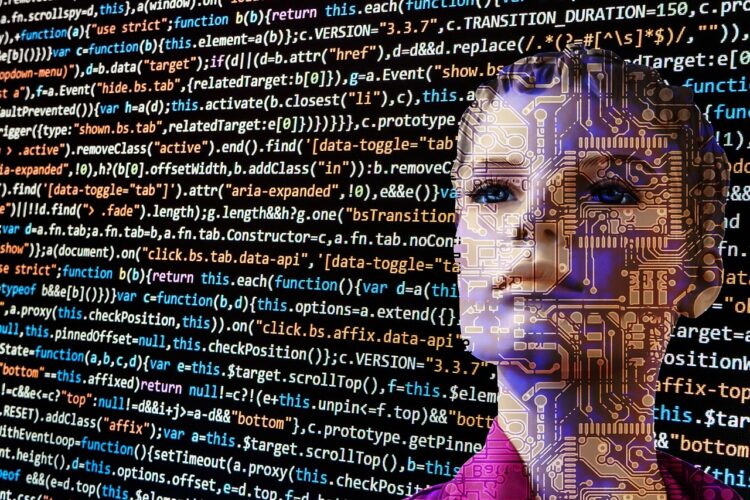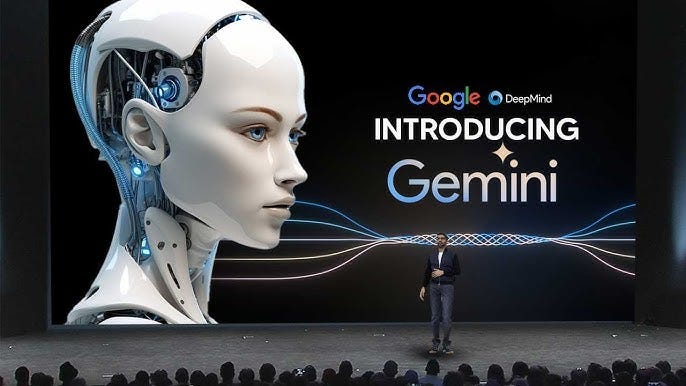
The Risks of AI: Threats and Challenges
AI – Artificial Intelligence – technology has many benefits. But at the same time, the technology has brought many risks that are worth noticing. New and new technologies are being introduced, for instance, Google Gemini that is both helpful and threatening.
Let’s take a look at these:
Deepfakes

Deepfakes, a disturbing byproduct of AI, are hyper-realistic videos or audio recordings where individuals appear to say or do things they never did. This technology utilizes advanced machine learning algorithms to superimpose existing images and videos onto source images or videos, creating a nearly indistinguishable fake.
A notable example is the deepfake of Ukrainian President Volodymyr Zelensky, created during the 2022 Russia-Ukraine conflict, where he appeared to be making a statement he never actually did.
Another case involved deepfakes of political figures like Barack Obama and Donald Trump, used to demonstrate the technology’s potential for creating false narratives. These instances underscore the serious implications deepfakes have for spreading misinformation, manipulating political discourse, and damaging personal reputations. The ability to fabricate convincing falsehoods poses a significant threat, not only undermining public trust in media but also potentially swaying elections and inciting social unrest.
Spammy AI-Written Books

The publishing industry is grappling with a new challenge: the influx of spammy AI-written books. With AI’s capability to rapidly generate large volumes of text, the market is increasingly flooded with low-quality, AI-authored books and articles. This phenomenon not only dilutes the quality of content available but also poses a significant threat to the integrity of information.
For instance, numerous AI-generated eBooks on platforms like Amazon. These books are mere compilations of freely available internet content, lacking depth and originality.
The ease of producing such books means that valuable, meticulously researched works by genuine authors are at risk of being lost in a sea of AI-generated material. This undermines the efforts of real authors. But also poses a challenge for readers seeking quality and reliability in literature and information. The trend highlights the need for stringent measures to preserve the sanctity of authored content in the digital age.
Privacy Invasion
AI’s power to analyze massive troves of personal data has raised significant concerns about privacy invasion. In the digital age, our personal information is constantly being harvested and scrutinized by AI systems, leading to profound implications for individuals and society as a whole.
One alarming example is the use of AI in social media algorithms. Platforms employ AI to mine user data, track online behaviors, and tailor content recommendations, often without explicit consent. This level of surveillance can lead to echo chambers, where users are exposed to increasingly polarized viewpoints. Facial recognition technology is another prime example.
AI-driven facial recognition systems can track individuals without their knowledge or consent, raising fears of mass surveillance by governments and corporations. Privacy advocates argue that such technology erodes the fundamental right to anonymity in public spaces. These concerns highlight the urgent need for robust data protection regulations, ethical AI practices, and increased awareness to safeguard individuals’ privacy in an AI-driven world.
Job Displacement

The rise of AI and automation presents a dual-edged sword for society. This has profound economic and social implications. It’s true that AI-driven efficiency promises economic gains. But it also threatens significant job displacement across various sectors.
Automation’s ability to perform routine tasks with precision and speed means that jobs in manufacturing, customer service, and even some white-collar professions are at risk. One of the key challenges is re-skilling the workforce. AI takes over certain roles. So, many workers may find themselves displaced and in need of new skills to stay relevant. Governments and industries must invest in comprehensive retraining and upskilling programs. This is to ensure a smooth transition for affected employees.
Moreover, there is a growing concern about economic inequality. The benefits of AI often accrue to corporations and the tech-savvy, exacerbating income disparities. In addition, policymakers face the critical task of ensuring that AI-driven prosperity is shared more equitably. This may be possible through measures like a universal basic income or progressive taxation.
Bias and Discrimination
AI’s capacity to perpetuate and exacerbate biases is a pressing concern. When AI algorithms are not meticulously crafted, they may inadvertently adopt and amplify the biases present in their training data. This can result in unjust and discriminatory consequences, particularly in crucial areas like hiring, law enforcement, and credit scoring.
For instance, biased algorithms can lead to prejudiced hiring decisions or the unjust targeting of certain communities by law enforcement. Tackling this issue demands vigilant scrutiny of AI systems, transparent design, and ongoing efforts. This will eliminate biases from data and algorithms to ensure fairness and equity in AI applications.



